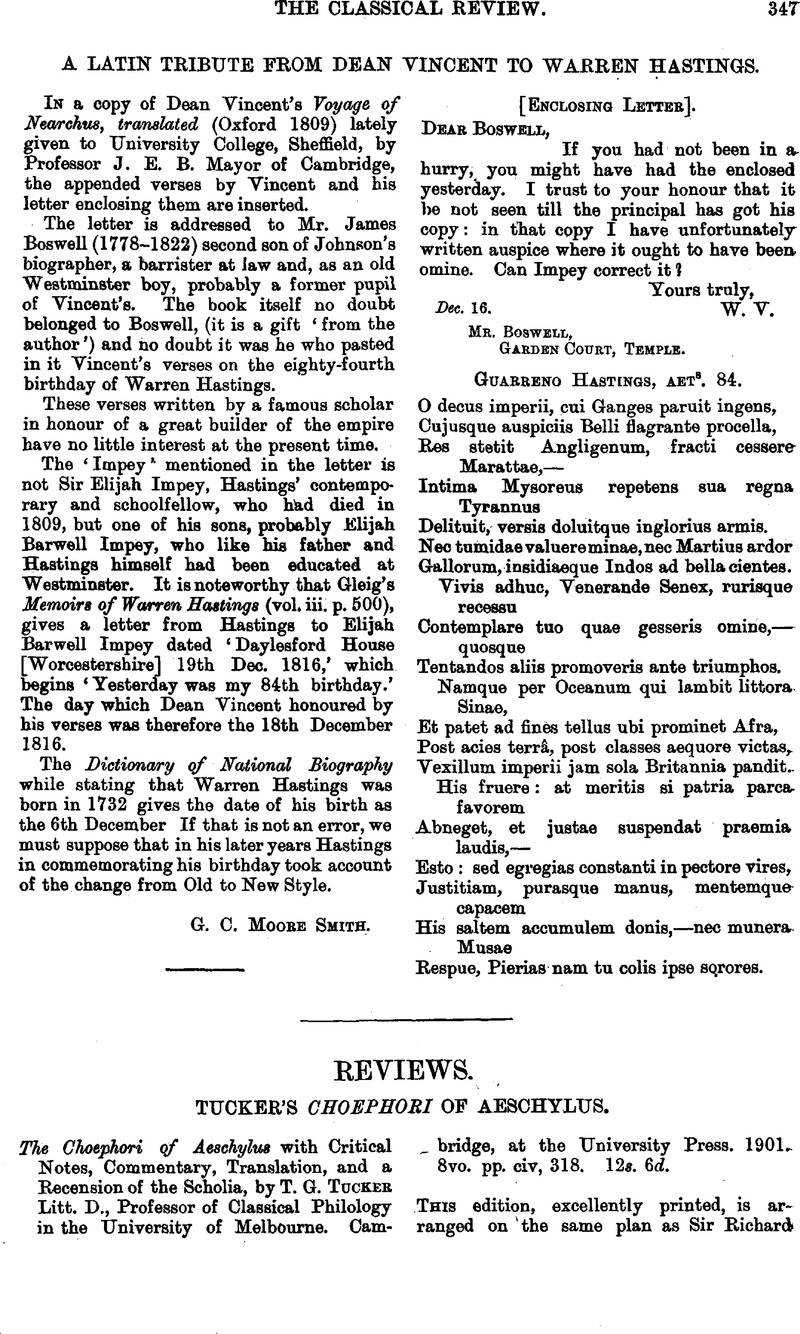No CrossRef data available.
Published online by Cambridge University Press: 27 October 2009

page 348 note 1 C.R. 1890 D. 105.
page 348 note 2 The reading of the schol.
page 348 note 3 Plat. Phaedo 107 D.
page 348 note 4 M. Schmidt ; χρὀνίζουσα (Schuetz) or χρονίζοντα come to the same thing.
page 348 note 5 Schuetz for ἄκραντος.
page 348 note 6 Quoted by Suid. s.v. παρπόδα.
page 349 note 1 Camb. Univ. Reporter Dec. 4, 1900.
page 350 note 1 This he explains in the old way, and accounts for ![]() by the remark that ‘the Scythian police (
by the remark that ‘the Scythian police (![]() ) had been established at Athens from B.C. 480.’ Possibly; but would Aeschylus make his Chorus cry for the police?
) had been established at Athens from B.C. 480.’ Possibly; but would Aeschylus make his Chorus cry for the police?
page 351 note 1 I think with Schuetz it ought to be ![]() .
.
page 352 note 1 The corruption is of a common type, as ![]() for
for ![]() in Eur. Alc. 226.
in Eur. Alc. 226.
page 352 note 2 ![]() M, but altered from
M, but altered from ![]() : I still think it should be
: I still think it should be ![]() .
.
page 352 note 3 C.R. 1898 p. 348.
page 352 note 4 The same consecution as in Supp. 857–9 = 867–9, Ag. 993–5 = 1007–9.
page 354 note 1 The true reading, strange as it may look, I now believe to be M. Schmidt's νηλεῶς.